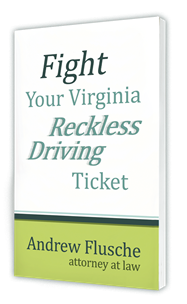What are the Miranda Rights?
If you’ve been charged with a Virginia misdemeanor, such as DUI, driving on a suspended license, or possession of marijuana, you may be wondering about your Miranda rights. Potential clients frequently mention “the police didn’t read me my rights.”
First of all, what are the Miranda rights? Simply put, they are a warning the police give to suspects before they are interrogated when in police custody. The term “Miranda rights” comes from Miranda v. Arizona, where the U.S. Supreme Court kept out the defendant’s confession due to the coercive nature of the interrogation.
The rights explained in a “Miranda warning” are:
- Right to remain silent
- Right to an attorney
Essentially what this means is that you don’t have to talk to the police and that you have the right to have an attorney present for a custodial interrogation. If you do talk, your statements WILL be used against you in court. And of course the state will appoint an attorney for you if you’re indigent.
But how does Miranda apply to traffic and misdemeanor cases?
Honestly, in the vast majority of the cases I handle, Miranda warnings don’t matter a single bit. People are shocked when I explain this, but it’s really quite simple.
DUI cases provide a great example. Let’s say an officer pulls a driver over for speeding. He’s fully entitled to ask questions to investigate that offense without any Miranda warnings (the driver isn’t considered in custody while pulled over on the side of the road).
Then if the officer suspects a DUI, he asks the driver out of the vehicle for field sobriety tests. The driver’s still not in custody, so Miranda doesn’t apply.
Once the officer has enough evidence to support probable cause for a DUI, he arrests the defendant. But the only thing left for a typical DUI case is the breath / blood test. In Virginia, the driver is obligated to take the test (or be charged with refusal), so there’s no confession issues there.
The only way Miranda would matter for an average DUI is if the defendant made harmful statements after the arrest. But usually the harmful statements are made during the first few minutes of the stop before the handcuffs come out. Thus in many cases, the fact that the officer didn’t read your rights is completely irrelevant to a defense.
The key question for Miranda is whether or not you made a statements (or other admissions) while in custodial interrogation. If so, the Miranda warning must have been given first. But if there’s no custodial interrogation, Miranda frankly doesn’t matter.




